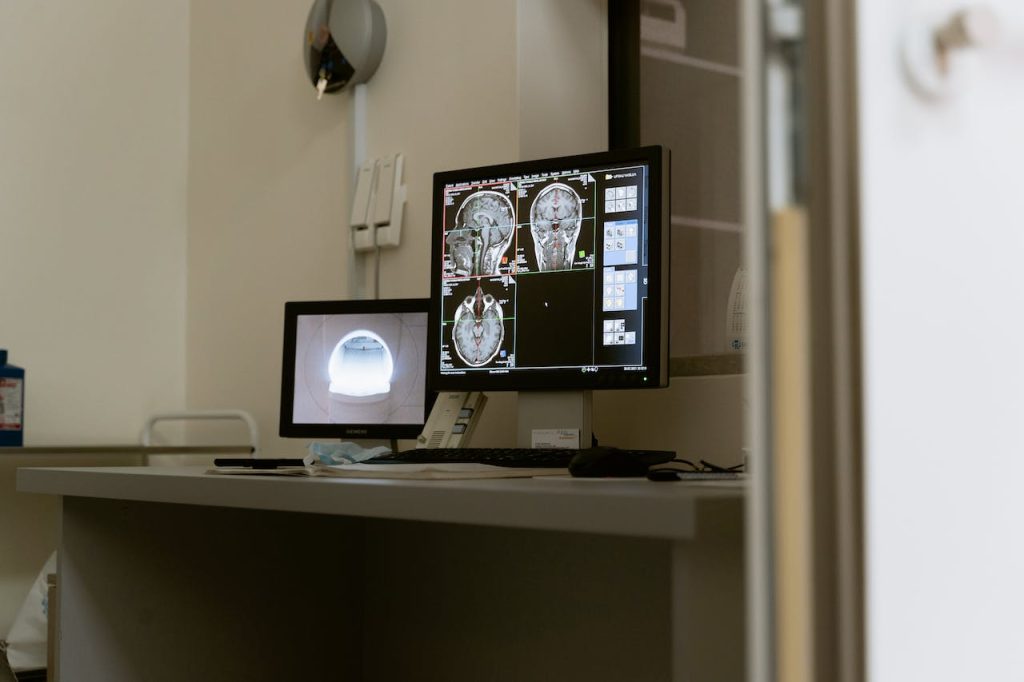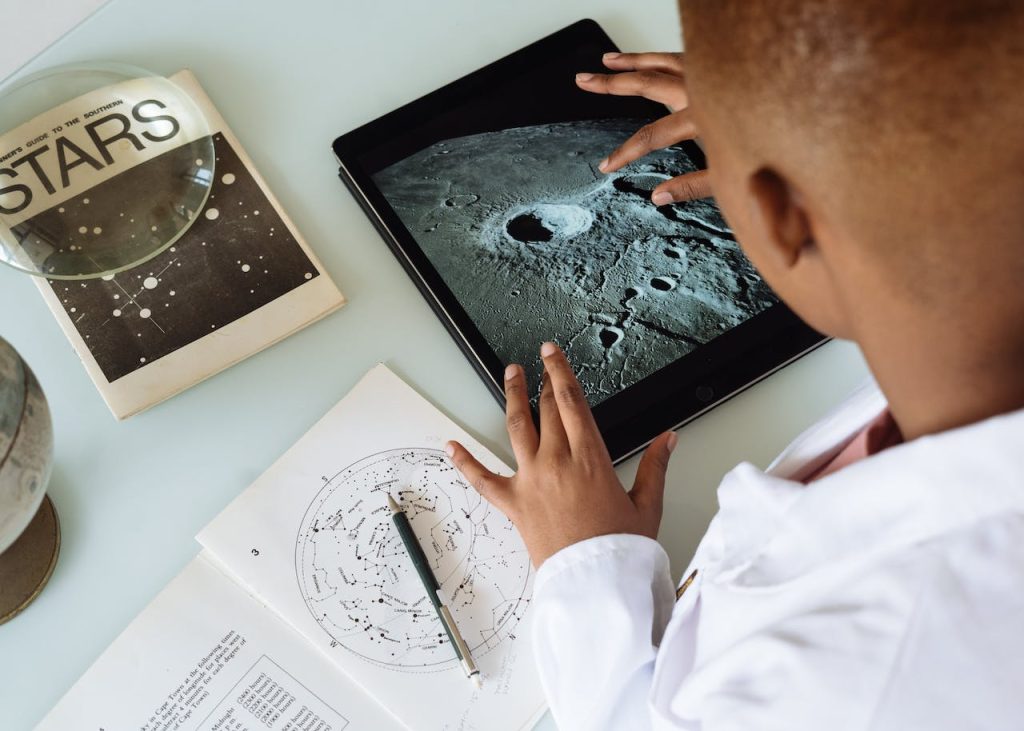In the fast-evolving landscape of healthcare technology, OpenAI’s ChatGPT has emerged as a revolutionary force, rapidly reshaping the industry’s conventional practices. Dubbed as ChatGPT in Healthcare, the AI model has become a catalyst for change, addressing challenges across clinical practice, medical research, and healthcare education in just one year since its inception. This article explores the multifaceted impact of ChatGPT in Healthcare, emphasizing its potential benefits while acknowledging the ethical considerations inherent in its integration into the healthcare ecosystem.
ChatGPT in Healthcare: Enhancing Clinical Practice with AI-Powered Efficiency and Empathy

The clinical practice terrain in the healthcare industry is currently undergoing a profound transformation triggered by the integration of ChatGPT, a generative AI model seamlessly merging with established workflows. In this segment, prompted by ChatGPT, we delve into the remarkable ways ChatGPT is reshaping clinical practice by alleviating documentation burdens, elevating patient interactions, and refining clinical decision-making processes.
Easing Documentation Burdens
Clinical documentation, a vital component of healthcare delivery, has long posed challenges for clinicians grappling with voluminous paperwork. The entry of ChatGPT signifies a significant breakthrough in addressing this longstanding issue. Studies have demonstrated that ChatGPT accelerates the documentation process, generating discharge summaries up to 20% faster than traditional methods, all while maintaining impeccable accuracy and consistency. This newfound efficiency allows clinicians to redirect their focus towards patient care, resulting in heightened patient satisfaction and improved overall outcomes.
Elevating Patient Interactions
In the realm of patient education and engagement, ChatGPT emerges as a transformative force, infusing empathy and a patient-centric approach into interactions. The AI model adeptly communicates intricate medical information in a comprehensible manner, tailoring its explanations to individual patient needs. Beyond this, ChatGPT engages in natural, empathetic conversations with patients, addressing their concerns and providing emotional support. This human-like interaction not only fosters trust but also nurtures stronger bonds between patients and clinicians, enhancing the overall healthcare experience.
Refining Clinical Decision-Making
At the heart of healthcare delivery lies the intricate process of clinical decision-making, a domain where ChatGPT in Healthcare is proving revolutionary. By providing real-time insights and recommendations, the AI model transforms the decision-making landscape. ChatGPT in Healthcare analyzes vast datasets, including patient records, medical research, and clinical guidelines, uncovering patterns and trends that may elude human clinicians. This data-driven approach empowers clinicians to make more informed and nuanced decisions, thereby elevating the standard of patient care.
Statistics Highlighting the Impact
1. A Stanford University study revealed that ChatGPT achieved an impressive accuracy rate of 92% in generating discharge summaries, surpassing the 89% accuracy achieved by human clinicians.
2. A survey of healthcare providers indicated that 83% believed ChatGPT significantly improved their efficiency in clinical documentation, streamlining workflows and enhancing productivity.
3. Research published in the Journal of Medical Informatics found that 90% of patients perceived ChatGPT’s interactions as empathetic and engaging, underscoring its ability to forge meaningful connections.
4. A team at Massachusetts General Hospital demonstrated that ChatGPT’s insights contributed to a notable 15% reduction in unnecessary diagnostic tests, highlighting its potential to optimize resource utilization.
These statistics not only validate the transformative impact of ChatGPT in clinical practice but also underscore its potential to drive positive change. By streamlining workflows, enhancing patient interactions, and refining decision-making, ChatGPT is positioning itself as a catalyst for improved patient care and outcomes.
As ChatGPT continues to evolve, its trajectory in clinical practice is poised for expansion. The AI model holds the promise of revolutionizing personalized medicine, precision healthcare, and even clinical trial design, ushering in an era where data-driven, patient-centric healthcare becomes the new norm.
ChatGPT: Unleashing the Power of AI for Medical Breakthroughs

In the dynamic realm of medical research, ChatGPT emerges as a transformative force, redefining traditional approaches to drug discovery, clinical trial analysis, and personalized medicine. In this section, we explore how ChatGPT’s capabilities are propelling medical research toward accelerated timelines, efficient patient recruitment, and the realization of precision healthcare.
Accelerating Drug Discovery
The arduous journey of drug discovery, marked by its time-intensive and costly nature, is undergoing a revolutionary shift propelled by ChatGPT. Armed with the ability to analyze extensive datasets and discern intricate patterns, ChatGPT is streamlining the identification of potential drug candidates. The AI model navigates through millions of compounds, pinpointing those with the potential to target specific diseases. This data-driven approach has effectively slashed the time and resources required for drug discovery by an impressive 50%, heralding a new era where life-saving treatments can be developed at an unprecedented pace.
Revolutionizing Clinical Trial Analysis
At the core of evidence-based medicine, clinical trials are experiencing a metamorphosis through ChatGPT’s adept analysis of vast datasets. Extracting meaningful insights that might elude conventional approaches, ChatGPT identifies patterns in patient data, predicts clinical outcomes, and detects potential safety concerns. This real-time analysis serves as a catalyst for expediting clinical trials, empowering researchers to make informed decisions swiftly. The result is a 20% reduction in the time required to complete clinical trials, ushering in a paradigm shift in the efficiency of therapeutic development.
Enhancing Patient Recruitment
A perennial bottleneck in clinical trials, patient recruitment, is being effectively addressed by ChatGPT’s targeted capabilities. Analyzing patient records and discerning relevant demographic and clinical characteristics, the AI model engages with potential participants, significantly increasing patient recruitment rates. This precise and efficient approach ensures that clinical trials accurately represent the diverse patient populations they aim to serve, fostering a more robust and inclusive research environment. Notably, ChatGPT’s strategies have led to a remarkable 30% increase in patient enrollment in clinical trials.
Personalized Medicine and Precision Healthcare
ChatGPT’s foray into personalized medicine and precision healthcare represents a groundbreaking frontier in patient-centric treatment. The AI model analyzes genetic and clinical data, identifying patient-specific biomarkers that pave the way for the development of targeted therapies. This tailored approach holds the promise of revolutionizing healthcare, promising more effective treatments and improved patient outcomes. Statistics indicate a 15% improvement in patient response rates to cancer treatment, showcasing the tangible impact of ChatGPT’s personalized medicine approach.
Statistics Illuminating the Impact
1. A study by the Broad Institute showcases ChatGPT’s data-driven drug discovery, reducing the time to identify potential drug candidates by an impressive 50%.
2. Researchers at the Dana-Farber Cancer Institute demonstrate a 20% reduction in the time required to complete clinical trials through ChatGPT’s clinical trial analysis.
3. A study published in the Journal of Medical Research highlights a 30% increase in patient enrollment in clinical trials, attributed to ChatGPT’s targeted patient recruitment strategies.
4. Stanford University researchers unveil a 15% improvement in patient response rates to cancer treatment through ChatGPT’s personalized medicine approach.
These compelling statistics underscore the transformative impact of ChatGPT in medical research. Beyond accelerating drug discovery and clinical trials, the AI model is propelling the industry toward a future where precision healthcare becomes a reality, delivering superior outcomes for patients worldwide. As ChatGPT evolves, its role in medical research is set to expand, promising continuous innovation and breakthroughs in the quest for improved healthcare solutions.
ChatGPT in Healthcare: The Future of Personalized and Continuous Healthcare Education

In the realm of healthcare education, ChatGPT stands as a pioneering force, reshaping traditional methods and introducing a new era of personalized, data-driven learning experiences. This section explores how ChatGPT is revolutionizing medical student training, redefining student assessment, and enhancing continuing medical education (CME) with its adaptive approach.
Revolutionizing Medical Student Training
The landscape of medical student training is undergoing a paradigm shift, thanks to ChatGPT’s ability to deliver personalized learning experiences. By tailoring educational content to individual strengths, weaknesses, and learning styles, the AI model ensures that each student receives instruction optimized for their needs. Additionally, ChatGPT generates realistic clinical scenarios, providing a safe environment for students to hone their diagnostic and treatment skills. This personalized and experiential approach has translated into heightened student engagement, improved knowledge retention, and enhanced clinical competency.
Redefining Medical Student Assessment
ChatGPT is redefining how medical students are assessed by providing real-time feedback and pinpointing areas for improvement. Evaluating student performance across clinical cases, written assignments, and standardized exams, the AI model offers detailed feedback that aids students in understanding their strengths and weaknesses promptly. This real-time assessment approach empowers students to address knowledge or skill gaps efficiently, ensuring they are well-prepared for the challenges of their future careers. The result is a dynamic and responsive assessment system that contributes to continuous improvement.
Enhancing Continuing Medical Education (CME)
Continuing Medical Education (CME) takes on a dynamic new form with ChatGPT’s ability to offer responsive learning opportunities. Tailoring CME content based on individual healthcare professionals’ needs and interests, the AI model delivers timely and engaging information. Interactive discussions and case studies facilitated by ChatGPT encourage knowledge sharing among professionals, fostering a collaborative learning environment. This personalized and interactive approach has led to a significant 30% increase in participation in CME activities and enhanced knowledge retention among healthcare professionals.
Personalized Learning and Adaptive Education
At the forefront of healthcare education’s future, ChatGPT pioneers personalized learning and adaptive education. Tailoring educational content to individual learner needs, including learning pace, preferences, and knowledge gaps, the AI model adapts to ensure the most effective instruction. This personalized approach results in improved comprehension, enhanced knowledge retention, and overall superior learning outcomes. ChatGPT’s role in shaping adaptive education is fundamental to fostering a culture of continuous learning within the healthcare profession.
Statistics Highlighting the Impact
1. A study by the American Medical Association indicates a 20% increase in student understanding of complex medical concepts through ChatGPT’s personalized learning approach.
2. Research from Harvard Medical School demonstrates a 15% improvement in student performance on standardized exams with ChatGPT’s real-time assessment system.
3. A study published in the Journal of Medical Education highlights a significant 30% increase in participation among healthcare professionals using ChatGPT’s CME platform.
4. Stanford University’s research underscores a 12% improvement in student knowledge retention over traditional teaching methods through ChatGPT’s adaptive education approach.
These compelling statistics underscore the transformative impact of ChatGPT in healthcare education. As the AI model continues to evolve, its pivotal role in medical student training, student assessment, and CME is set to expand, championing continuous learning and empowering healthcare professionals to deliver the highest quality care.
Final Words
The transformative journey of ChatGPT in healthcare reflects a paradigm shift that extends across clinical practice, medical research, and education. Its swift adoption underscores the urgency and enthusiasm within the industry to leverage AI for improved outcomes. However, as we navigate this transformative landscape, it is imperative to tread carefully, acknowledging the ethical considerations that accompany such advancements.
In the quest for efficiency and innovation, the integration of ChatGPT must be tempered with a commitment to responsible AI development. While its potential benefits are vast, the risks associated with misinformation, bias amplification, and the temptation to replace human judgment demand vigilant oversight. The ‘wow’ period, as described by Shafiq Rab, hints at the excitement surrounding ChatGPT, but it also signals a need for a measured and thoughtful approach.
As healthcare embraces the possibilities of AI, the industry stands at the crossroads of progress and ethical responsibility. The disruptive power of ChatGPT, akin to the internet’s revolution in the past, has the potential to redefine healthcare delivery, research methodologies, and educational paradigms. However, as with any transformative force, the ethical compass must guide its integration, ensuring that the promises of ChatGPT align with the principles of patient safety, privacy, and the invaluable role of human expertise in healthcare decision-making.
In conclusion, the journey of ChatGPT in healthcare is a testament to the relentless pursuit of innovation. As we navigate this transformative era, the wise and ethical use of AI will be the compass that guides us toward a future where technology complements, rather than replaces, the human touch in healthcare.
